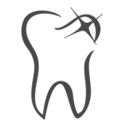
VISITING HOURS:
Week Days - 9 am to 8 pmSundays - Only Emergency Cases
All You Need to Know About Teeth Grinding
Have you noticed that your teeth are becoming worn down or sensitive? You may be experiencing bruxism, which is also known as teeth grinding. This condition affects millions of people worldwide and can lead to serious dental issues if left untreated. This blog discusses the causes and symptoms of teeth grinding, as well as treatment and preventive suggestions. Say goodbye to painful mornings, and hello to healthier teeth! Read on to check out all you need to know about tooth grinding.
What is Teeth Grinding?
Teeth grinding, or bruxism is a condition characterized by the involuntary clenching and grinding of teeth. While occasional teeth grinding is common, chronic bruxism can cause serious dental problems over time.
Bruxism is in two categories which include awake bruxism and sleep bruxism. Awake bruxism occurs while the person is conscious and usually involves clenching their jaw in response to stress or anxiety. Sleep bruxism typically happens during deep sleep and can be caused by factors such as misaligned teeth or an abnormal bite.
A qualified dentist can help you with proper diagnosis and treatment for teeth grinding. With the right care plan in place, however, most people with mild-to-moderate cases of teeth grinding can find relief from their symptoms.
Causes of Teeth Grinding
Teeth grinding or bruxism can be caused by a variety of factors, with some being more common than others:
Stress and Anxiety
Stress and anxiety are common conditions many people suffer from, and they can cause teeth grinding. When a person is angry they may clench their jaw muscles together without realizing it. Over time, this can cause tooth wear and tear.
Uneven Bite
Dental problems like bite alignment issues in your mouth can cause bruxism. An uneven bite can cause people to grind their teeth as a way to find relief from discomfort or pain.
Smoking and Alcohol
Lifestyle choices like smoking and alcohol consumption can increase the risk of bruxism. In addition, certain medications, including antidepressants, antipsychotics, and allergy medications, may contribute to this condition.
Read to know: How does Smoking Affect Your Teeth?
Sleep Disorder
Sleep disorders such as sleep apnea may also trigger teeth grinding since these conditions interfere with normal sleep patterns leading to involuntary muscle movements, including clenching or gnashing of the teeth.
Genetics
Teeth grinding can also be caused by family history. People who have bruxism in their family can get the disorder at any age.
Symptoms of Teeth Grinding
Many people are unsure about whether they are having teeth-grinding issues or not because the symptoms are not always noticeable. Nevertheless, it is essential to pay attention to the signs, as untreated bruxism can lead to severe oral health problems.
Headache
One of the most common symptoms of teeth grinding is a dull headache in the temples or jaw muscles that persists upon waking up in the morning. This pain results from constant clenching and unclenching of your jaws while you sleep.
Sensitivity
Another indication is tooth sensitivity due to enamel erosion caused by excessive pressure on your teeth. You might also notice facial muscle soreness, especially around your cheeks and ears.
Temporomandibular Joint (TMJ) Disorder
In some cases, chronic bruxism leads to temporomandibular joint (TMJ) disorder; this occurs when there’s damage or inflammation in your TMJ resulting from prolonged jaw clenching during sleep.
It’s crucial to schedule an appointment with a dentist if you experience any of these symptoms persistently. A dental professional can confirm whether you have bruxism by examining your mouth for telltale signs like worn-down tooth surfaces or chipped enamel.
Prevention and Treatment
Preventing teeth grinding can be a challenge, but it is not impossible. Here are some tips to help you prevent this harmful habit:
1. Reduce Stress: One of the main causes of bruxism is stress, so reducing your stress can help you prevent teeth grinding.
2. Avoid Energy Drinks and Coffee: Avoid energy drinks like caffeine and alcohol, before bed, which can help you avoid teeth grinding.
3. Get a Mouth Guard: using a mouth guard while sleeping can also help you to prevent tooth grinding
4. Don’t Neglect Your Sleep Hygiene: Maintaining a regular sleep pattern and developing a soothing bedtime routine may reduce nighttime teeth clenching and grinding.
5. Practice Relaxation Techniques: Techniques such as meditation or deep breathing exercises may reduce muscle tension and alleviate bruxism symptoms.
Read to know: Tooth Erosion: Causes, Symptoms, and Treatment Options
Conclusion
Many people have trouble sleeping because they grind their teeth. Symptoms may include tooth decay, migraines, and jaw pain. Numerous factors, including stress and anxiety, can lead to tooth grinding. Relaxation methods, mouthguards, and medication are only some of the effective therapies for teeth grinding that are currently accessible. If you suspect you are having these issues during the day or night, contact your dentist. Also, understanding the preventive measures will help you rather than treating the condition.
Try reducing stress levels through exercise or relaxation techniques and avoid consuming caffeine late in the day, which can exacerbate symptoms. Early intervention and proper treatment can help prevent long-term complications associated with bruxism. So don’t wait until it’s too late – take action today to protect your oral health!
Also Read: Best 10 Remedies to Stop Snoring
OUR
TREATMENTS
TREATMENTS








